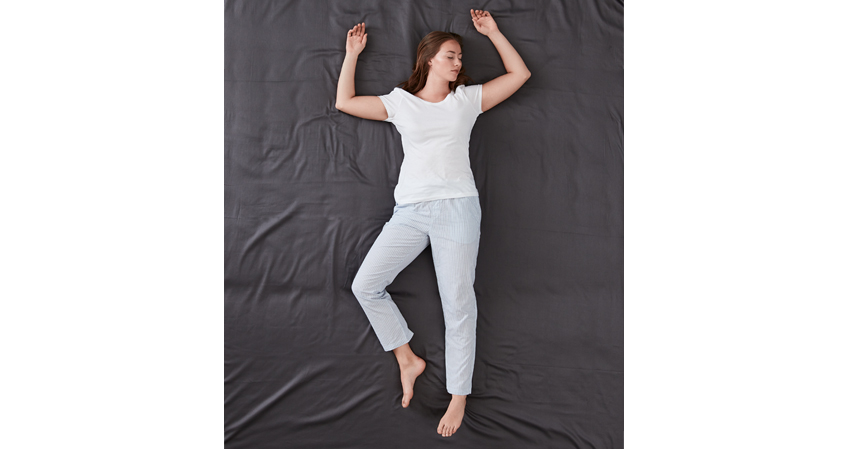

When you consistently sleep on the same side, muscle imbalances that contribute to back pain can occur. Sleeping on your side can reduce your risk of back pain, as long as you alternate sides. Putting a pillow between your legs may help with knee or hip pain. If you wake up with aching knees or hips, try to open up your position a little, if possible. Although this position isn't bad for your back, it can lead to aches and pains in other parts of your body as you age. In fact, 47 percent of people prefer sleeping curled in the position, according to The Better Sleep Council. The fetal position is a favorite of many people. If you can't fall asleep unless you lie on your stomach, try placing a pillow under your hips to prevent your lower back from arching too much. Turning your head in this position may also strain the muscles in your neck and shoulders. Stomach sleeping forces you to arch your lower back, which may cause morning pain. Sleeping on your stomach may be comfortable, but it's not very good for your back. Stress on your joints, muscles, and ligaments increases if you don't maintain the natural curvature of your back as you sleep.Įxploring Common Sleeping Positions and Their Effects on Your Backĭo you fall asleep in one of these positions? Here's how they may affect your back: Positions that fail to keep your head, neck, and back properly aligned and supported are more likely to trigger back pain. Unfortunately, wear and tear in addition to the natural effects of aging can make your back more susceptible to aches and pains if you continue to sleep in certain sleeping positions. Back then, you could easily fall asleep in any position and not experience any consequences.

Your preferred sleeping may be the same one you used when you were five. Focusing on improving your sleeping position during National Better Sleep Month in May just may help ease your back pain. If you haven't fallen, lifted heavy items, or exercised intensely recently, your sleeping position may be to blame for your pain. It's not always easy to narrow down the cause of early morning back pain, particularly if you don't remember doing anything that could trigger the pain. How Your Sleeping Position Can Lead to Back Problems


 0 kommentar(er)
0 kommentar(er)
